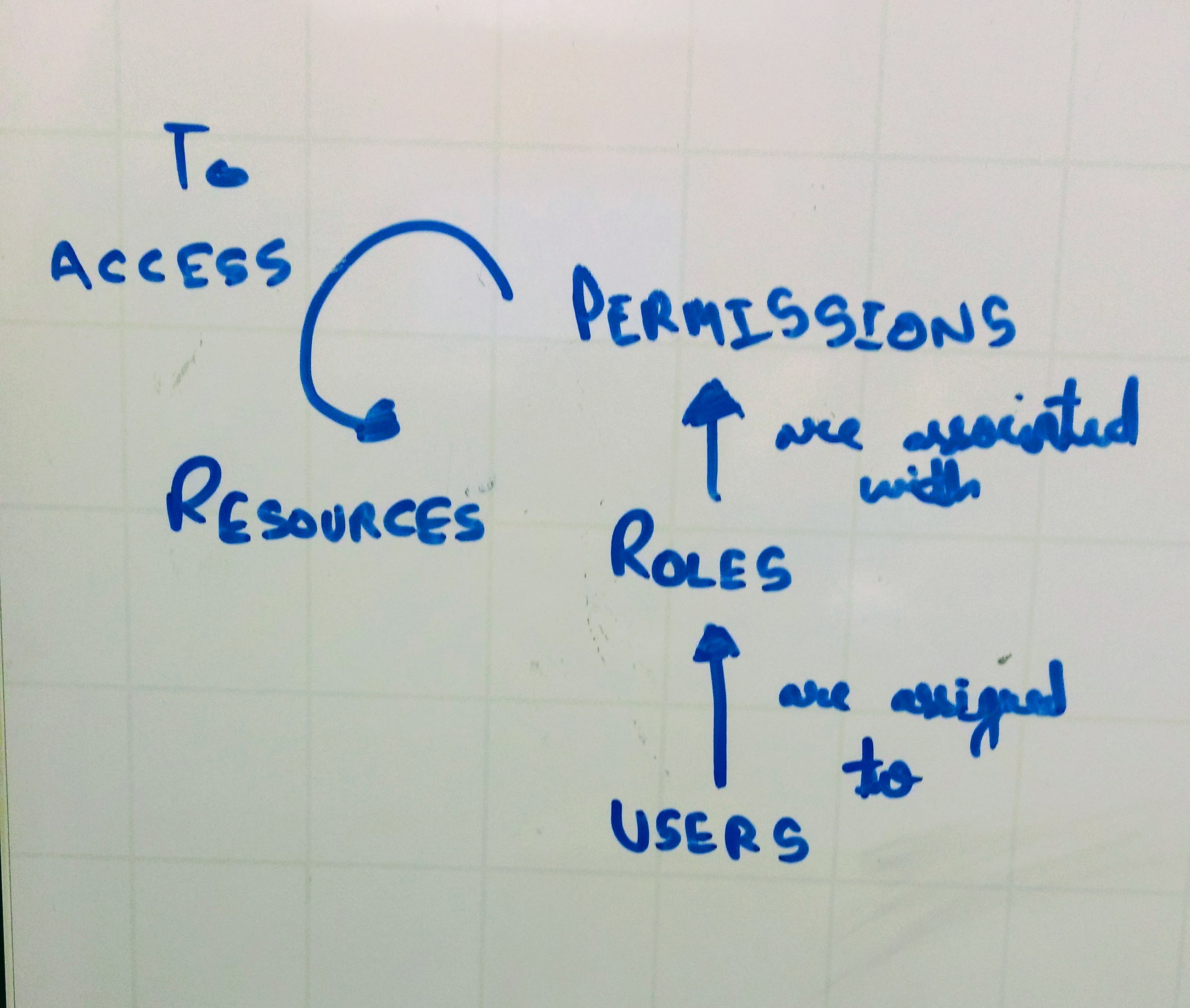easyrbac
Role based Access Control implementation using the standard library
I wrote a little piece on medium about it if you are interested on reading.
NOTE: Still under heavy development.
Installation
$ mkvirtualenv rbac
$ workon rbac
(rbac)$ pip install easyrbacDemo
Role creation and assignment of role to a User
from easyrbac import Role, User
default_role = Role('default')
admin_role = Role('admin')
default_user = User(roles=[default_role])
admin_user = User(roles=[admin_role, default_role])User resource access permissions allocation
from easyrbac import AccessControlList, User, Role
everyone_role = Role('everyone')
admin_role = Role('admin')
everyone_user = User(roles=[everyone_role])
admin_user = User(roles=[admin_role, everyone_role])
acl = AccessControlList()
acl.resource_read_rule(everyone_role, 'GET', '/api/v1/employee/1/info')
acl.resource_delete_rule(admin_role, 'DELETE', '/api/v1/employee/1/')
# checking READ operation on resource for user `everyone_user`
for user_role in [role.get_name() for role in everyone_user.get_roles()]:
assert acl.is_read_allowed(user_role, 'GET', '/api/v1/employee/1/info') == True
# checking WRITE operation on resource for user `everyone_user`
# Since you have not defined the rule for the particular, it will disallow any such operation by default.
for user_role in [role.get_name() for role in everyone_user.get_roles()]:
assert acl.is_write_allowed(user_role, 'WRITE', '/api/v1/employee/1/info') == False
# checking WRITE operation on resource for user `admin_user`
for user_role in [role.get_name() for role in everyone_user.get_roles()]:
if user_role == 'admin': # as a user can have more than one role assigned to them
assert acl.is_delete_allowed(user_role, 'DELETE', '/api/v1/employee/1/') == True
else:
assert acl.is_delete_allowed(user_role, 'DELETE', '/api/v1/employee/1/') == FalseTests
easyrbac uses py.test for running the tests, running which is as simple as doing a
$ py.testTODO
- Adding hierarchical roles, which represent parent<->child relations
- Adding this on top of Bottle/Flask
- Make it
pipinstallable
Issues
You can submit the issues on the issue tracker here
Literature material
- http://profsandhu.com/articles/advcom/adv_comp_rbac.pdf
- http://www.comp.nus.edu.sg/~tankl/cs5322/readings/rbac1.pdf
- https://symas.com/ansi-rbac-intro/
- https://pythonhosted.org/Flask-Principal/
- https://iamfortress.net/2014/11/24/using-role-for-access-control-is-not-rbac/
- http://cloudify.co/2016/04/15/simple-secure-role-based-access-control-rest-api-rbac-server-devops-cloud-orchestration.html
RBAC in simple terms
Links
LICENSE
GPLv3
